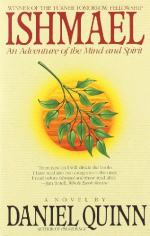
|
| Name: _________________________ | Period: ___________________ |
This test consists of 15 multiple choice questions and 5 short answer questions.
Multiple Choice Questions
1. Where does Ishmael say mankind’s flaw is?
(a) In its story of its origins
(b) In human nature itself
(c) In the development of agriculture
(d) In the divine plan for mankind
2. What does the narrator say grew where his idealism had died?
(a) A sense of dread
(b) A scar
(c) A tumor
(d) A sense of rage
3. What distinction does Ishmael point out between Leaver and Taker cultures?
(a) The absence of medicine in Leaver culture
(b) The absence of the fear of death in Leaver culture
(c) The absence of guilt in Leaver culture
(d) The absence of prophets in Leaver culture
4. Where, in the narrator’s account, does the destruction of the earth get reversed?
(a) As soon as someone discovers how to make money from healing the natural world
(b) It never does
(c) As soon as the political parties can come to agreement
(d) In the future, with the children
5. What does Ishmael say is mythical about the story the narrator tells in Chapter 3?
(a) The arrangement of the facts
(b) The facts themselves
(c) The chronology
(d) The implied redemption
6. What manipulation does the narrator say man had to learn in order to master his environment?
(a) How to manipulate his womenfolk
(b) How to manipulate the production of goods
(c) How to manipulate his food supply
(d) How to manipulate trade
7. What does the narrator say was removed when man learned to farm?
(a) The desire for earthly paradise
(b) The limitations of the hunter-gatherer lifestyle
(c) The need to have respect for animals
(d) The temptation to control nature
8. What does the narrator say made the difference between men before and the men that live now?
(a) Agriculture
(b) Writing
(c) Stories
(d) Language
9. How does Ishmael say the narrator learned the story of ‘how things came to be this way’?
(a) In his earliest experience with his family
(b) All at once in church
(c) A little at a time
(d) Systematically, in school
10. In Chapter 5, how does the narrator characterize the world without man?
(a) Raw material
(b) Bloody jungle
(c) Post-apocalyptic dreamscape
(d) Paradise
11. How does Ishmael say the followers of Copernicus convinced people to change their view of heliocentrism?
(a) By fighting in court and in classrooms
(b) By getting them to pay attention to that was really there
(c) By discrediting the proponents of heliocentrism
(d) By censoring heliocentrism in journals and textbooks
12. What does Ishmael say, in Chapter 5, is man’s purpose on the earth?
(a) To dream it
(b) To rule it
(c) To perfect it
(d) To fulfill it
13. What is the story the narrator tells in Chapter 3?
(a) The war between good and evil
(b) The evolution of man
(c) God’s creation of the universe
(d) God’s expulsion of Adam and Eve from the Garden of Eden
14. In Chapter 5, what perspective does Ishmael say the narrator should look at the world from?
(a) From the earth’s perspective
(b) From a jellyfish’s perspective
(c) From a woman’s perspective
(d) From outer space
15. Where does the narrator say the conquest narrative in Chapter 6 ends?
(a) With the conquest of all knowledge
(b) With rebellion and collapse
(c) With the mapping of DNA and the brain
(d) With the conquest of outer space
Short Answer Questions
1. What is the office building like, where the narrator answers the newspaper ad?
2. How does Ishmael characterize man’s progress, once he discovered agriculture?
3. What does the narrator say the ad in Chapter 1 was looking for?
4. From whose perspective does Ishmael tell a rival creation story in Chapter 4?
5. How does Ishmael say that men see the ruin of nature, according to the narrator’s culture’s mythology?
|
This section contains 652 words (approx. 3 pages at 300 words per page) |

|




